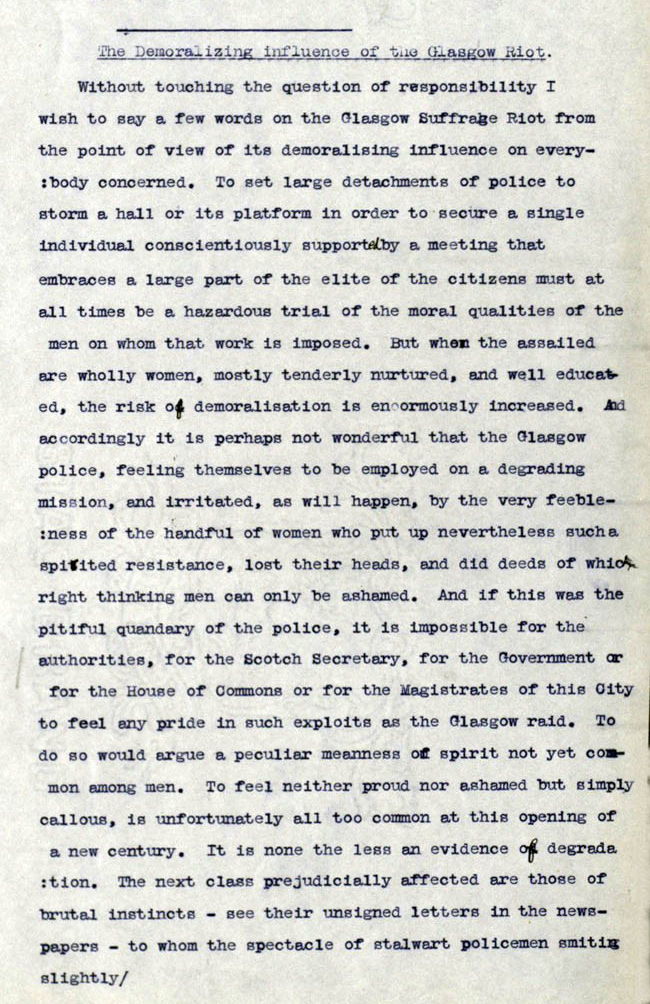Source 1: Statement by Mr William Thomson
Mr William Thomson witnessed the arrest of Emmeline Pankhurst at St Andrew's Hall in Glasgow. His statement, titled 'The Demoralizing Influence of the Glasgow Riot', went before the Magistrates Committee. He considers the far-reaching implications of answering violent protest with more violence.
There are four pages to Mr Thomson's statement. Only the first page is shown here (with a transcript below). Print a transcript of the full statement as a word document (Rich Text Format, 20KB, new window).
Link to background information on suffragettes in Scotland
|
Transcript
The Demoralizing influence of the Glasgow Riot
Without touching the question of responsibility I
wish to say a few words on the Glasgow Suffrage Riot from
the point of view of its demoralising influence on everybody concerned. To set large detachments of police to
storm a hall or its platform in order to secure a single
individual conscientiously supported by a meeting that
embraces a large part of the elite of the citizens must at
all times be a hazardous trial of the moral qualities of the
men on whom that work is imposed. But when the assailed
are wholly women, mostly tenderly nurtured, and well educated, the risk of demoralisation is enormously increased. And
accordingly it is perhaps not wonderful that the Glasgow
police, feeling themselves to be employed on a degrading
mission, and irritated, as will happen, by the very feebleness of the handful of women who put up nevertheless such a
spirited resistance, lost their heads, and did deeds of which
right thinking men can only be ashamed. And if this was the
pitiful quandary of the police, it is impossible for the
authorities, for the Scotch Secretary, for the Government or
for the House of Commons or for the Magistrates of this City
to feel any pride in such exploits as the Glasgow raid. To
do so would argue a peculiar meanness of spirit not yet common among men. To feel neither proud nor ashamed but simply
callous, is unfortunately all too common at this opening of
a new century. It is none the less an evidence of degradation. The next class prejudicially affected are those of
brutal instincts - see their unsigned letters in the newspapers - to whom the spectacle of stalwart policemen smiting
slightly/
(National Records of Scotland reference: HH55/336/57)
Print
the transcript for the full statement as a word document (Rich Text Format, 20KB, new window). |
